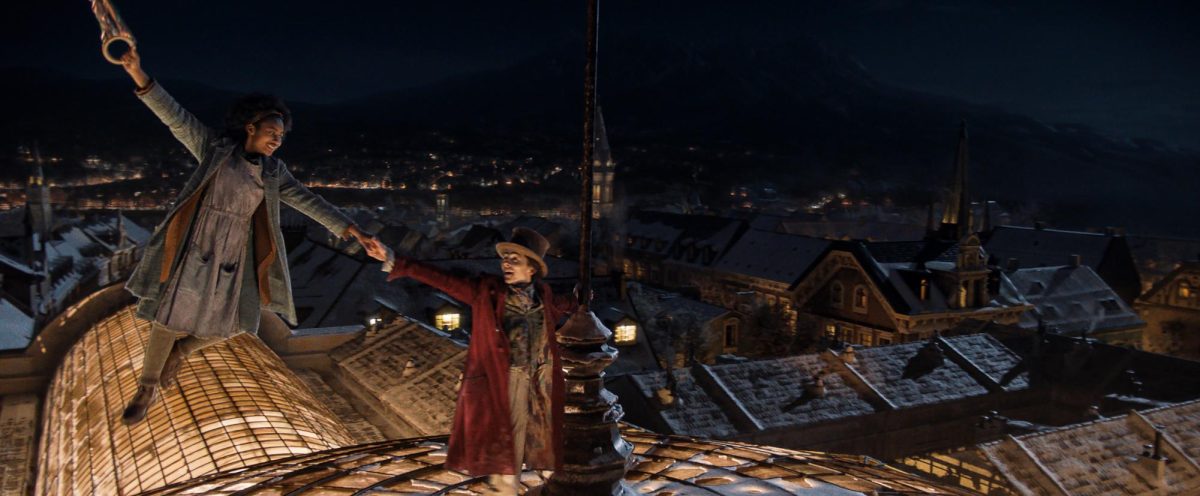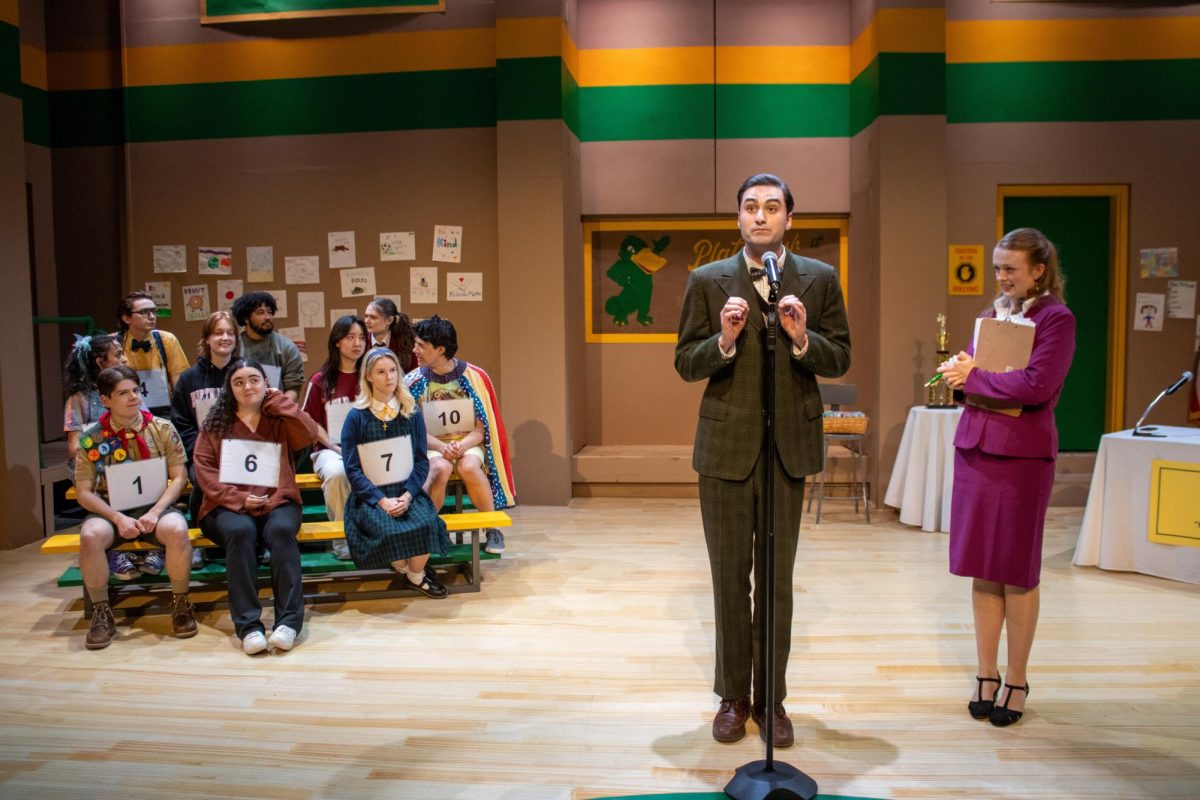Quiet up and listen down, everyone: As saccharine as it may be, “Wonka” is a fun, heartfelt story that is sure to leave a cavity-filled smile on any viewer’s face.
The film, which serves as a prequel and, according to director Paul King, a “companion piece” to the 1971 movie “Willy Wonka & the Chocolate Factory,” follows a young and bright-eyed Willy Wonka (Timothée Chalamet) looking to fulfill his dream of opening a chocolate shop and sharing his confections with the world. The only people who can stop him are a grifting laundromat owner (Olivia Colman) and her henchman (Tom Davis), corrupt town officials, a devious trio known as the Chocolate Cartel (Paterson Joseph, Matt Lucas and Matthew Baynton) and a vengeful Oompa-Loompa (Hugh Grant). What could possibly go wrong?
The audience is immediately brought into Wonka’s world — an unnamed town reminiscent of anywhere in Western Europe — after his globetrotting adventures in which he gathered ingredients come to an end. It’s established in the first five minutes or so that all Wonka has to his name is a lack of money and “A Hatful of Dreams,” the aptly-titled first song of this musical, an aspect of the film that is completely hidden from its marketing materials.
Audiences probably didn’t think this movie would be laced with half a dozen Chalamet-led show tunes due to their lacking presence in the trailers, so their actual abundance may come as a pleasant surprise — or an irksome one, depending on taste. The soundtrack, which includes a score by Joby Talbot and original songs from Neil Hannon, is what truly anchors the film. Circus-like, jovial background music is constantly playing, and Hannon’s lyricism conveys both the movie’s foregrounded goofiness and underlying seriousness.
Take “For a Moment,” the duet between Wonka and Noodle (Calah Lane), a resourceful orphan that Wonka befriends. While helping him milk a giraffe (because Wonka’s treats require not cow’s milk, but obviously that of a giraffe), Noodle begins to revel in Wonka’s kindness, singing, “For a moment, life doesn’t seem quite so bad / For a moment, I kind of forgot to be sad.” The chocolatier, on the other hand, sings, “Snakes, flamingos, bears and poodles / Singing this song will improve your moodle.”
This sequence is where Lane does her best work in the film. Noodle’s experiences under the so-called care of the aforementioned laundromat owner, Mrs. Scrubitt, had given her a cynical, glass-half-empty mindset about the world. Once she’s introduced to Wonka’s positivity-fueled brand of magic, Noodle too becomes a dreamer. A corresponding rooftop dance between Chalamet and Lane and the song’s swelling orchestrals are the perfect addition to one of the movie’s emotional climaxes.
Chalamet plays the eager Wonka with earnest frivolity, bringing a refreshing innocence to the character that isn’t as present in Gene Wilder or Johnny Depp’s depictions. He isn’t the best singer or dancer to grace the acting industry, but Chalamet holds his own during musical numbers and, in doing so, brings about an interesting poise and likeability to Wonka that pairs well with his muted eccentricity.
Aside from the cartoon-y antagonists the movie portrays — the members of the Chocolate Cartel are exceedingly pompous and the gluttonous chief of police (Keegan-Michael Key) gets fatter as the movie progresses — there isn’t a shred of sinister undertones present in “Wonka.” The candymaker is pure and unscratched, and not even the loss of his mother (Sally Hawkins) can bring him down. If anything, her absence is what inspires Wonka to sing his chocolatey gospel to all and share the happiness he finds in candy with the world.
For those who don’t have a sweet tooth, “Wonka” may not be the best movie to watch this holiday season. However, if a feel-good, fantastical movie is just what someone wants, then this prequel is their golden ticket.

















